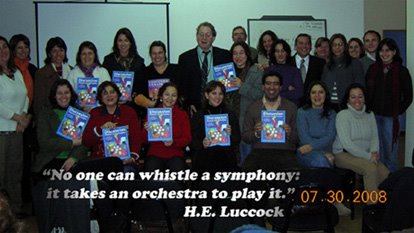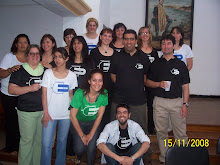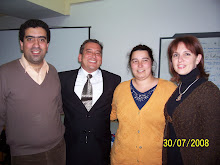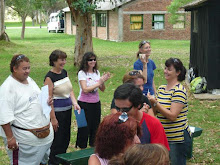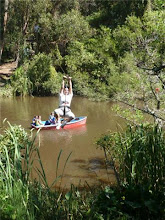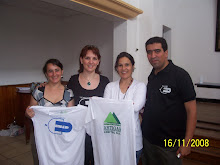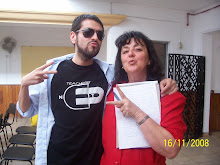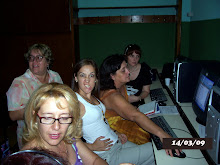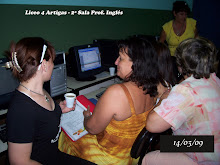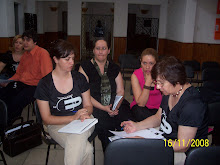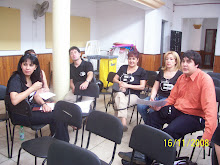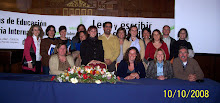
Yesterday’s Sala was a huge success! 4 PADs attended (Salto, Rivera, Tacuarembó and Artigas) and teachers from Bella Unión and Artigas shared a whole day at Centro PAOF, working on very interesting topics.
Many people made this event possible: some of them from the distance (thanks, PADs Alice and Andrea, for your priceless contribution!) and some others by literally being there (Aldo, Sandra and Anthony, THANKS A LOT! Myriam, WHAT A WONDERFUL SURPRISE! Aldo, my friend "todo terreno", what can I say to you? Knowing that you are always there is ... WONDERFUL!)
We would also like to thank all the teachers that contributed in one way or the other to making this dream come true (María Noel and Andrea, I am SO PROUD of you! You were GREAT, not only with your "talk", but also in the organization process. I love you! Nidia, Raquel, Teresita, thanks for your support at liceos number 2, 3 and 4 and with the Sala! Luis, you were great, too! Gina, thanks for being the "link" with Bella Unión! We loved having you here with us!).
To all the teachers who attended ... we (the organizers) are very happy to have had the opportunity to share this Saturday with you. BE PREPARED! There's more to come!
(pictures will be uploaded soon)

